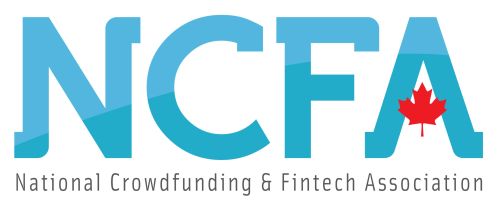Wilson Elser Moskowitz Edelman & Dicker | Anjali Das | Jan 23, 2023

Image: Unsplash/PiggyBank
The recent implosion of crypto firm FTX and its affiliates provides a case study for potential crypto exposure under traditional insurance policies in this series of four articles
See: White House Releases Comprehensive Framework for Digital Assets Highlighting 6 Key Priorities
- OCC Softens Stance on Banks' Cryptocurrency Activities: In the past few years, the U.S. Office of the Comptroller of the Currency (OCC) has issued a series of interpretative letters and guidance regarding the agency's loosening stance on banks engaged in cryptocurrency activities.
- First, OCC confirmed that banks may provide cryptocurrency custody services to customers by holding the "unique cryptographic keys associated with cryptocurrency.
- Second, OCC has indicated that banks also may hold reserves to support "stablecoin" transactions.
- Third, OCC has authorized banks to participate in cryptocurrency transactions based on blockchain or DLT, including independent node verification networks (INVNs).
- With advances in technology and the global financial markets, there is "increasing demand in the market for faster and more efficient payments through the use of decentralized technologies, such as INVNs, which validate and record financial transactions, including stablecoin transactions."6 As such, the OCC has concluded that a "bank may validate, store and record payments transactions by serving as a node [or participant] on an INVN.
- OCC's softer stance on cryptocurrency activities by banks has opened the door for traditional financial institutions to participate in a limited capacity. In October 2022, the nation's oldest bank, BNY Mellon, announced the launch of its Digital Asset Custody platform to hold and transfer Bitcoin and Ether (ETH) for select clients.
See: Are Markets Moving Towards a Crypto Fiduciary + Caveat Emptor Standard?
- Don't Count on FDIC Insurance for Crypto Assets:
- The Federal Deposit Insurance Corporation (FDIC) has made it abundantly clear that FDIC insurance does not apply to financial products such as "crypto assets" or other types of securities or commodities. Moreover, FDIC insurance "does not protect against the default, insolvency, or bankruptcy of any non-bank entity, including crypto custodians, exchanges, brokers, wallet providers, and neobanks."
- Digital Asset Vault & Wallet Insurance: In growing recognition of the need for insurance as a risk management tool for cryptocurrency and digital asset custodial services, insurance companies are slowly wading into the market with new and innovative products.
Continue to the full article --> here
 The National Crowdfunding & Fintech Association (NCFA Canada) is a financial innovation ecosystem that provides education, market intelligence, industry stewardship, networking and funding opportunities and services to thousands of community members and works closely with industry, government, partners and affiliates to create a vibrant and innovative fintech and funding industry in Canada. Decentralized and distributed, NCFA is engaged with global stakeholders and helps incubate projects and investment in fintech, alternative finance, crowdfunding, peer-to-peer finance, payments, digital assets and tokens, blockchain, cryptocurrency, regtech, and insurtech sectors. Join Canada's Fintech & Funding Community today FREE! Or become a contributing member and get perks. For more information, please visit: www.ncfacanada.org
The National Crowdfunding & Fintech Association (NCFA Canada) is a financial innovation ecosystem that provides education, market intelligence, industry stewardship, networking and funding opportunities and services to thousands of community members and works closely with industry, government, partners and affiliates to create a vibrant and innovative fintech and funding industry in Canada. Decentralized and distributed, NCFA is engaged with global stakeholders and helps incubate projects and investment in fintech, alternative finance, crowdfunding, peer-to-peer finance, payments, digital assets and tokens, blockchain, cryptocurrency, regtech, and insurtech sectors. Join Canada's Fintech & Funding Community today FREE! Or become a contributing member and get perks. For more information, please visit: www.ncfacanada.org
Related Posts
- SEO Powered Content & PR Distribution. Get Amplified Today.
- Platoblockchain. Web3 Metaverse Intelligence. Knowledge Amplified. Access Here.
- Source: https://ncfacanada.org/insurers-cautioned-on-silent-crypto-exposure/
- 2018
- 2022
- a
- activities
- advances
- affiliates
- against
- agency
- alternative
- and
- announced
- Apply
- article
- asset
- Assets
- associated
- Bank
- Bankruptcy
- Banks
- based
- become
- Bitcoin
- blockchain
- BNY
- BNY Mellon
- brokers
- cache
- Canada
- Capacity
- case
- case study
- clear
- clients
- closely
- Commodities
- community
- Companies
- comprehensive
- Comptroller
- Comptroller of the Currency
- concluded
- CONFIRMED
- CORPORATION
- create
- Crowdfunding
- crypto
- CRYPTO FIRM
- crypto-assets
- cryptocurrency
- cryptographic
- Currency
- custodial
- custodial services
- custodians
- Custody
- Custody Services
- Customers
- decentralized
- Default
- Demand
- deposit
- DEPOSIT INSURANCE
- digital
- Digital Asset
- Digital Asset Custody
- Digital Assets
- distributed
- DLT
- Dogecoin
- Door
- ecosystem
- Education
- efficient
- engaged
- entity
- ETH
- Ether
- Ether (ETH)
- Exchanges
- Exposure
- faster
- fdic
- Federal
- Federal Deposit Insurance Corporation
- few
- finance
- financial
- financial products
- fintech
- Firm
- Framework
- from
- full
- funding
- get
- Global
- global financial
- Government
- Growing
- helps
- highlighting
- hold
- holding
- House
- HTTPS
- implosion
- in
- Including
- increasing
- independent
- industry
- information
- Innovation
- innovative
- INSOLVENCY
- insurance
- insurers
- Insurtech
- Intelligence
- investment
- Issued
- IT
- Jan
- Key
- keys
- launch
- Limited
- made
- management
- Market
- Markets
- max-width
- Mellon
- member
- Members
- more
- more efficient
- moving
- nation
- Need
- Neobanks
- networking
- networks
- New
- node
- OCC
- october
- Office
- Office of the Comptroller of the Currency
- oldest
- opportunities
- Other
- participate
- partners
- past
- payments
- peer to peer
- perks
- platform
- plato
- Plato Data Intelligence
- PlatoData
- please
- policies
- potential
- Products
- projects
- protect
- provide
- providers
- provides
- recent
- recognition
- record
- regarding
- Regtech
- Releases
- reserves
- Risk
- risk management
- Sectors
- Securities
- Series
- Services
- serving
- Slowly
- stablecoin
- stakeholders
- standard
- Stewardship
- store
- Study
- such
- support
- Technologies
- Technology
- The
- thousands
- Through
- to
- today
- Tokens
- tool
- towards
- traditional
- Transactions
- transfer
- types
- u.s.
- under
- unique
- Unsplash
- use
- VALIDATE
- Vault
- Verification
- vibrant
- Wallet
- which
- white
- White House
- works
- years
- zephyrnet












